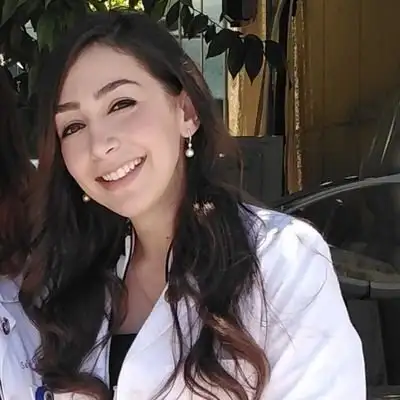Creators and Guests















What is GN in Ten?
A bite-size podcast brought to you by the International Society of Glomerular Disease. Nephrologists and glomerular disease experts Dr. Kenar Jhaveri (Northwell Health/Hofstra University) and Dr. Koyal Jain (UNC Chapel Hill) take a lighthearted look at the latest research, discuss clinical practice, and interview leaders in glomerular medicine — all in a short enough time to listen on your coffee break.
GN in Ten: Episode 2, Kidney Week Micro-Interviews
===
Laurel Damashek: [00:00:00] Welcome to GN in Ten, a bite sized podcast brought to you by the International Society of Glomerular Disease. Our hosts are nephrologists and glomerular disease experts Dr. Kenar Jhaveri of Northwell Health and Hofstra University on Long Island, New York, and Dr. Koyal Jain from the University of North Carolina Chapel Hill.
Koyal Jain: Hi everyone. Welcome to this very special episode in GN in Ten with Kenar Jhaveri and me. In this special episode, Kenar and I conducted micro interviews with attendees at the ASN Kidney Week and asked them what their favorite glomerular disease was.
To start off, I am a glomerular expert, but my favorite GN is ANCA vasculitis. It is extremely satisfying to help patients who often do not get diagnosed for a while. Also, the ability to make a difference in patients' disease process and quality of life is gratifying. Let's see what you all found [00:01:00] most interesting in the glomerular disease world.
We have Dr. Anna Burgner with us and what's your favorite glomerular disease?
Anna Burgner: My favorite glomerular disease is preeclampsia because it is the most common glomerular disorder in the entire world.
Koyal Jain: Thank you so much.
Nasim Wiegley: Hi, my name is Nasim Wiegley. I'm an assistant professor at University of California, Davis. And I have a glomerular disease clinic at Davis. My favorite GD disease is lupus nephritis mainly because of the complexity and also the availability of many various options for treatment.
Joyita Bharati: My name is Joyita. I'm a fellow at BMC. My favorite glomerular disease is podocytopathy.
Two main reasons. Number one, it's a diversified diagnosis. Many etiologies exist. However, it's still puzzling. The pathogenesis is still not clear. And because of point number one, there's a huge prospect for research in this subject.
I hope that soon in the future, therapeutics will directly target the podocyte instead of only treating the epiphenomenon.[00:02:00]
Sri Yarlagadda: Sri Yarlagadda from the University of Kansas Medical Center. My favorite glomerular disease is ANCA vasculitis because there's definite paths for treatment and it's not as vague as the other GN.
Koyal Jain: Thank you so much Sri, I appreciate it.
Monica Reynolds: My name is Monica Reynolds. I'm from the University of North Carolina and my favorite glomerular disease is preeclampsia. It's the most common glomerular disease worldwide and affects kidney patients in large numbers. It also causes increased risk for chronic kidney disease and cardiovascular disease after pregnancy and is now being redefined by new endothelial markers that were originally discovered by nephrologists.
Prakash Gudsoorkar: My name is Prakash Gudsoorkar from Cincinnati, and my area of clinical interest is onconephrology and oncohypertension. Thrombotic microangiopathy pattern, or TMA, is my favorite glomerular disorder. TMA is like a medical detective story [00:03:00] where every case is a puzzle involving the kidneys, blood, and the immune system.
It requires piecing together clues from clinical presentation, lab results, and patient history to save lives and kidneys.
James Novak: Hi, this is James Novak from Henry Ford Hospital in Detroit, Michigan. My favorite glomerular disease is diabetic glomerulopathy because that is at least one of the most common glomerular diseases in the United States and there are some excellent treatments to attenuate its progression.
Koyal Jain: Thank you so much.
I appreciate it.
Purva Sharma: Purva Sharma from Northwell Nephrology. My favorite disease is lupus nephritis. I think every single time there's a new presentation, there's a new pathology, which makes it so interesting. The other thing is that after a large period of negative trials, we suddenly have a lot of positive trials in the last five years, which holds a very promising future for this young population with a large unmet need.
So we have a lot to look forward to in lupus, including CAR T, which makes it so interesting.
Gabriela Amador: My name is Gabriela Amador. I'm from Hospital General [00:04:00] de México in Mexico City. My favorite glomerular disease is membranous nephropathy because it has followed me since my nephrology training. In my public and private practice, I have many patients with this disease, and I find it challenging, mostly when we have limited resources for the diagnosis and follow up, like in my country.
It's enthusiastic how the knowledge of the disease has grown during the last few years.
Rose Mary Attieh: My name is Rose Mary Attieh. I'm a glomerular disease and onconephrology fellow at Northwell. My favorite GN is C3 glomerulopathy and the reason I chose it is because I'm so fascinated by its pathophysiology and by all the complexities of the alternative complement pathway. I'm also very excited about all the new clinical trials that are ongoing and I feel like for the first time we may have something more to offer these patients and to change the course of their disease.
Medha Airy: This is Medha Airy with Baylor College of Medicine. [00:05:00] My favorite GN is lupus nephritis and my passion for this disease makes me dedicate my time to Lupus Foundation of America as well. I would describe lupus nephritis as an intriguing autoimmune disease that can affect kidneys in many different ways and it is a challenge to treat.
New emerging treatment options recently are definitely revolutionary and promising and I'm so excited to be part of this changing landscape for lupus.
Rushang Parikh: My name is Rushang Parikh, and I am a nephrologist at the VA Northport in Long Island, New York. And my favorite GN probably has to be ANCA associated vasculitis. It's so fun to treat. Patients can have rapid recovery. And overall, it's a very satisfying disease to treat when caught early. And one of the best feelings to have as a physician and as a nephrologist is to save somebody's kidneys.
Koyal Jain: I have Dr. Steve Sozio with me from Hopkins here. And what's your favorite glomerular disease?
Steve Sozio: My favorite disease is membranous. Membranous continues to evolve in its treatment. It's exciting [00:06:00] how well rituximab is a effective treatment, especially in PLA2R positive membranous.
Koyal Jain: Thank you so much.
Duvuru Geetha: My name is Duvuru Geetha and I'm a nephrologist at Johns Hopkins University, Baltimore, Maryland. I like taking care of complex and challenging diseases, and ANCA associated vasculitis is one of them at each stage of the patient's journey at diagnosis, during prognostication, and treatment.
Keisha Gibson: My name is Keisha Gibson. I am chief of pediatric nephrology at the University of North Carolina at Chapel Hill. My favorite glomerular disease is the one that I actually hate the most, which is focal segmental glomerulosclerosis.
Koyal Jain: So why do you hate it? And why is it your favorite?
Keisha Gibson: I hate it because it is a diagnosis based upon histology.
It doesn't reveal to us initially who it really is. What I like about it is the fact that it is the source of, I think, a lot of what's exciting right now in nephrology as we're moving more into this era of precision medicine and that we're understanding that this [00:07:00] disease that we give one name is actually probably 50 or 100 different diseases.
So I hate FSGS, but I'm also very excited by what it's doing for our field and how it's helping us to advance what we do.
Koyal Jain: Thank you so much.
Javier Neyra: Hello, everybody. Javier Neyra. I'm from University of Alabama at Birmingham. My favorite glomerular disease is IgA nephropathy because of its high prevalence worldwide and because there is still fine tuning in the therapy to be done.
Koyal Jain: Awesome. Thank you so much, Javier.
Faten Aqeel: My name is Faten Aqeel, a Glomerular Diseases Fellow at Johns Hopkins. My favorite glomerular disease is Anti-Glomerular Basement Membrane Disease. I like challenges, and this rare disease can be challenging. For example, it can co present with ANCA vasculitis or membranous nephropathy and can have an atypical presentation.
Additionally, it poses multiple therapeutic challenges, particularly in dialysis dependent patients and those with refractory [00:08:00] disease.
Paul Hanna: Hi, my name is Paul Hanna. I'm with the Medical College of Wisconsin Division of Nephrology. My favorite GN is TMA because of how far our understanding has gotten into the complement dysfunction and all the different therapeutics that we can use for it.
Vandana Niyyar: Vandana Niyyar from Emory University in Atlanta, Georgia, and I'm fascinated by lupus nephritis, the wide variety of pathophysiology of immune complex deposition, the varied clinical presentations, and the management can be so rewarding if we are able to successfully achieve histological or clinical remission and prevent progression to ESKD.
Koyal Jain: So the next person I've known for a while. It's Dr. Matt Sparks, and I'm excited about what's his favorite glomerular disease.
Matt Sparks: Hi everybody, this is Matt Sparks. I'm the program director at Duke University. By far my favorite glomerular disorder is membranous nephropathy. Absolutely love it.
Koyal Jain: Why?
Matt Sparks: The very first talk I ever gave as a resident was [00:09:00] on membranous nephropathy, and I was fascinated by it then, and what caused it, and then when they finally figured out the majority of the cases were caused by an autoantibody to PLA2R, and now all these other ones are coming out, When I have a patient with it I'm excited, I'm thinking about what we can do to treat it.
And also, like, when you see a patient with it, and they're feeling horrible, and they're volume overloaded, and then you treat them, and all of it goes away. It is just absolutely amazing and you can't wait to go to clinic to see them because they're feeling so good.
Also, it has some historical perspective.
There's some thought that actually William Shakespeare had membranous nephropathy.
Koyal Jain: Really?
Matt Sparks: Yeah.
Koyal Jain: That is so cool.
Matt Sparks: Yeah, unfortunately, the association of why may be syphilis. But hey, membranous nephropathy is definitely it for me.
I love it and I seek out any case I can see.
Kenar Jhaveri: This is Kenar Jhaveri. Thank you for [00:10:00] listening to our GN in 10 special podcast on what are the most happening GNs for our nephrologists around the world. My favorite GN I'll end with is Minimal Change Disease or what we would call now Diffuse Protocytopathy because it's a novel discovery of antinephrin antibodies and I strongly believe we are on to something. So I think a lot more future to come on antinephrin nephropathy and that's what we should be calling it. So with that, we'll thank everybody and see you all .
Laurel Damashek: This has been GN in 10 from the International Society of Glomerular Disease. You can listen and subscribe wherever podcasts are found and tweet at us at ISGDtweets. Thank you for joining us.






